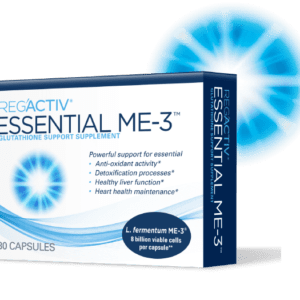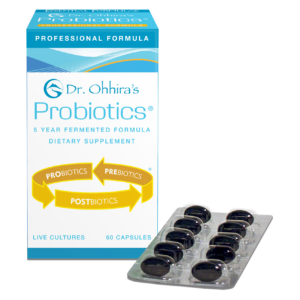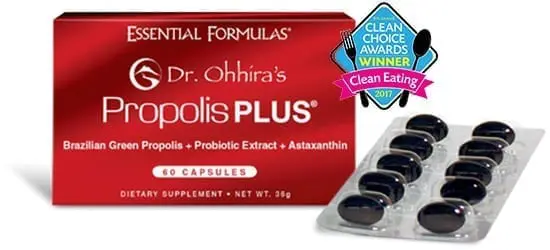By Ross Pelton, RPh, PhD, CCN
Dysbiosis and Sugar Leaky Gut
Our love affair with sugar has some not-so-sweet effects on our immune system. Sugar can have short-term and long-term impacts on the immune system in both children and adults. While the relationship between sugar and immunity is complex and not fully understood, there are some ways in which excessive sugar consumption can impact immunity.
If things aren’t right in your gut, you could experience a wide range of symptoms. These include headaches, pain, brain fog and chronic fatigue syndrome. But what is causing these troubles? More and more researchers are linking gut health conditions to sugar intake.
Several studies have concluded that dietary sugar can cause or contribute to the development of dysbiosis and leaky gut or increased intestinal permeability. Dysbiosis is the term that refers to intestinal problems that are caused by an imbalance between good and bad bacteria in the GI tract.
Leaky gut or intestinal permeability is a common condition that is caused by inflammation in the intestinal tract, which allows inappropriate contents from the intestinal tract to leak into circulation throughout the body. Inflammation in the intestinal tract is frequently caused by bad bacteria. Leaky gut is now known to often be associated with a compromised immune system and many other health problems.
Weakening Immune Function
High sugar intake can lead to chronic inflammation in the body. Chronic inflammation can impair immune function and make the body more susceptible to infections. Excessive sugar consumption may also reduce the ability of white blood cells, which are critical for fighting infections, to function effectively.
Imbalanced Gut Microbiota
Sugar can promote the growth of harmful bacteria in the gut and reduce the population of beneficial bacteria. An imbalanced gut microbiota can compromise the immune system since a significant portion of the immune system resides in the gut.
Nutrient Competition/Depletion
Consuming sugary foods and beverages often means consuming empty calories, which can displace nutrient-dense foods from the diet. A diet lacking essential nutrients can weaken the immune system.
Blood Sugar Spikes
High-sugar foods with a high glycemic index can lead to rapid spikes in blood sugar levels, followed by crashes. These fluctuations can stress the body and potentially impair immune function.
Obesity and Metabolic Syndrome
Excessive sugar consumption is linked to weight gain and an increased risk of developing metabolic syndrome. People with obesity and metabolic syndrome often have impaired immune function.
Does sugar cause leaky gut?
In a study involving the digestive system published in the Proceedings of the National Academy of Sciences, the authors report how excessive intake of dietary sugars can lead to an overgrowth of harmful bacteria in the colon. Normally, dietary sugar is absorbed in the upper intestinal tract, but this new information suggests that when excessive amounts of sugar are ingested, some of the sugar passes through the intestines unabsorbed. When sugar reaches your colon, it can inhibit the growth of beneficial bacteria and encourage the overgrowth of harmful bacteria.i
Specifically, this study reports that unabsorbed sugar in your colon can prevent the good bacteria from producing a key protein called “Roc”which stands for Regulator of Colonization. Roc is required for growth of the healthful species Bacteroides thetaiotaomicron (B. theta) in your colon. Lean, healthy individuals have been found to have higher levels of the Roc protein. Although this significant research was done in mice, the authors suggest the evidence should also apply to humans.
More Studies Support the Connection
Results of another study explains how high dietary sugar can cause dysbiosis and impair gut barrier function, resulting in leaky gut.ii These effects were found for both fructose and glucose. A third study focused on the detrimental effects of early-life sugar consumption on the gut microbiome, increasing the person’s lifetime chances of dysbiosis and obesity.iii
Many studies have reported that increased consumption of sugar increases risks to type 2 diabetes and obesity.iv The results of these studies add to the increasing body of scientific literature which reports an association between excessive consumption of dietary sugar and dysbiosis as well as other gut-related problems such as intestinal permeability or leaky gut.
What foods should you avoid if you have leaky gut syndrome?
People experience increased intestinal health when eating a diet including lots of fiber and limiting processed foods in their diet. If you have a condition as severe as celiac disease, you probably know that already. But many milder food sensitivities can go undetected for many years, resulting in painful leaking guts.
When you go to the grocery store, skip the items most likely to cause gut leakage, such as processed meats, dairy products, refined oils, alcohol, and anything containing wheat, gluten, artificial sweeteners or high sugar products. Instead, plan your diet around healthful whole foods.
How long does it take to heal leaky gut?
Once you’ve improved your diet, you’ll experience increased intestinal health and your leaky guts will begin to heal. The time it takes to rectify the problem of increased intestinal permeability will vary from person to person. But for many people, three months is a reasonable amount of time to expect your intestinal wall to feel better. If you continue to suffer from leaky gut syndrome or other digestive issues for more than a few months, seek medical advice.
More recommendations for leaky gut treatment
While diet, rest and exercise are all important components of a healthy life and gut, sometimes it takes even more to help fix a gut leak. Taking Dr. Ohhira’s Probiotics may accelerate the healing of your leaky gut. These supplements deliver probiotics, prebiotic foods and, most importantly, over 400 postbiotic metabolites. Postbiotic metabolites are compounds produced by probiotic bacteria which are key regulators of health, both in the GI tract and in all other organ systems of the body.
-
 Dr. Ohhira’s® Probiotic Supplements$13.95 – $89.95
Dr. Ohhira’s® Probiotic Supplements$13.95 – $89.95 -
 Reg´Activ Essential ME-3$39.95
Reg´Activ Essential ME-3$39.95 -
 Dr. Ohhira’s® Probiotics Professional Formula$39.95 – $129.65
Dr. Ohhira’s® Probiotics Professional Formula$39.95 – $129.65
How to Counteract the Effects of Sugar on Immunity
Reduce Added Sugar Intake
Limit sugary foods, snacks, beverages, and processed foods with added sugars. Read food labels to identify hidden sugars. Avoid high-fructose corn syrup and processed sugars, and look for foods using natural fruit sugars, monk fruit, or stevia.
Choose Whole Foods
Choose whole grains over refined grains to help stabilize blood sugar levels, and if you have a sweet tooth, satisfy it with whole fruits, which provide fiber and nutrients along with natural sugars.
Promote a Healthy Gut
Include fiber-rich foods like fruits, vegetables, legumes, and whole grains to support a diverse and healthy gut microbiota. Consider incorporating probiotic-rich foods like yogurt, kefir, and fermented vegetables to promote beneficial gut bacteria, and take a high-quality probiotic supplement containing pre-, pro-, and postbiotics.
Balanced Nutrition
Prioritize nutrient-dense foods that provide essential vitamins and minerals, such as lean proteins, vegetables, and nuts.
Maintain a Healthy Weight
Combine a balanced diet with regular physical activity to help maintain a healthy weight and reduce the risk of obesity and metabolic syndrome.
Monitor Blood Sugar Levels
Aim for balanced meals and snacks with carbohydrates, protein, and healthy fats to stabilize blood sugar levels.
While sugar can potentially weaken the immune system when consumed in excess, adopting a balanced and nutritious diet and a healthy lifestyle can help counter its adverse effects and support overall immune health.






